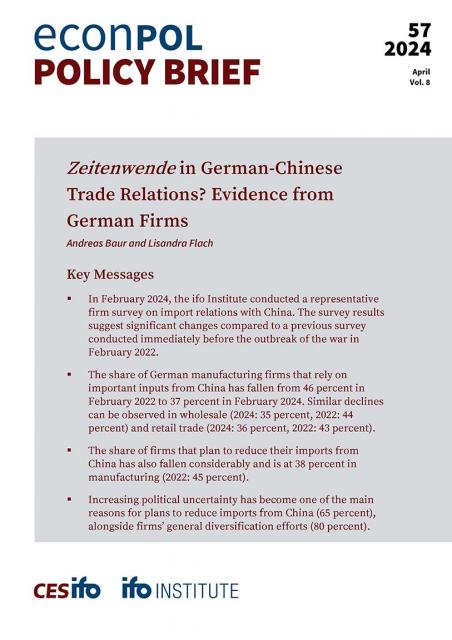Zeitenwende in German-Chinese Trade Relations?
Evidence from German Firms
Key Messages
- In February 2024, the ifo Institute conducted a representative firm survey on import relations with China. The survey results suggest significant changes compared to a previous survey conducted immediately before the outbreak of the war in February 2022.
- The share of German manufacturing firms that rely on important inputs from China has fallen from 46 percent in February 2022 to 37 percent in February 2024. Similar declines can be observed in wholesale (2024: 35 percent, 2022: 44 percent) and retail trade (2024: 36 percent, 2022: 43 percent).
- The share of firms that plan to reduce their imports from China has also fallen considerably and is at 38 percent in manufacturing (2022: 45 percent).
- Increasing political uncertainty has become one of the main reasons for plans to reduce imports from China (65 percent), alongside firms’ general diversification efforts (80 percent).
The Russian attack on Ukraine in February 2022 marked not only a turning point (Zeitenwende) for German security policy but also for German foreign economic policy. From a European standpoint, the war served as a painful reminder of how economic dependencies can be used as political leverage, bringing the geopolitical dimension of trade relations and economic interdependencies into public focus. In particular, economic ties with the People’s Republic of China are increasingly being scrutinized. The ifo Institute conducted a representative survey with German firms in February 2024 to assess changes in their reliance on Chinese inputs since the outbreak of the war and firms’ plans regarding their supply relationships with China.
Andreas Baur and Lisandra Flach: “Zeitenwende in German-Chinese Trade Relations? Evidence from German Firms,” EconPol Policy Brief 57, April 2024.
